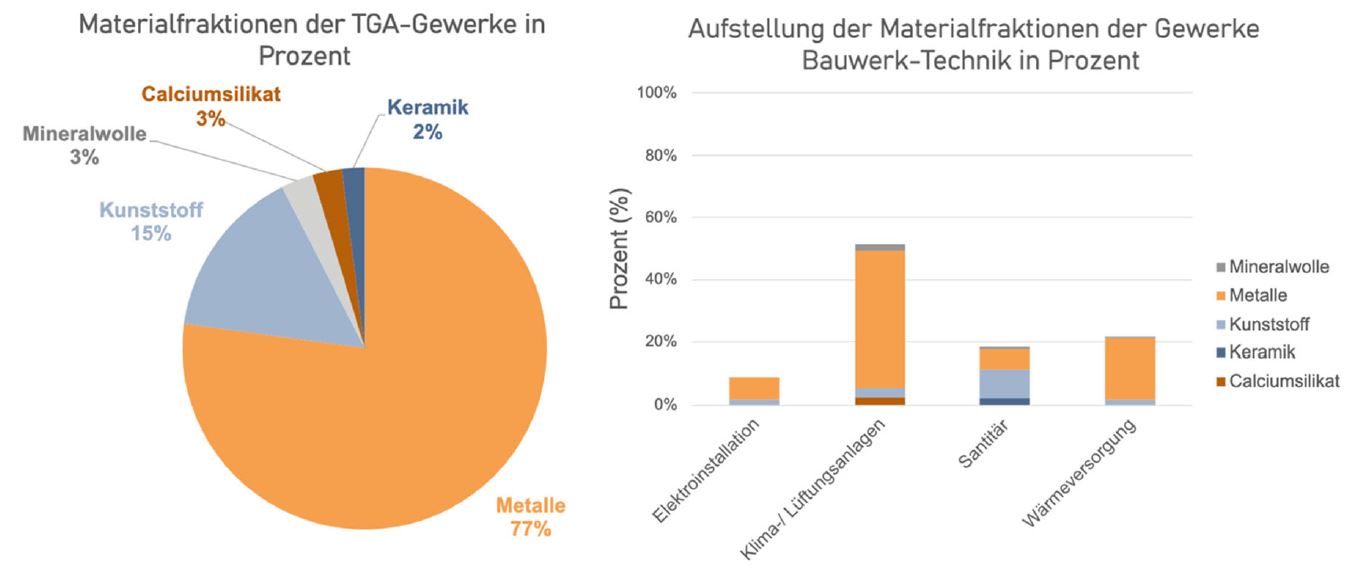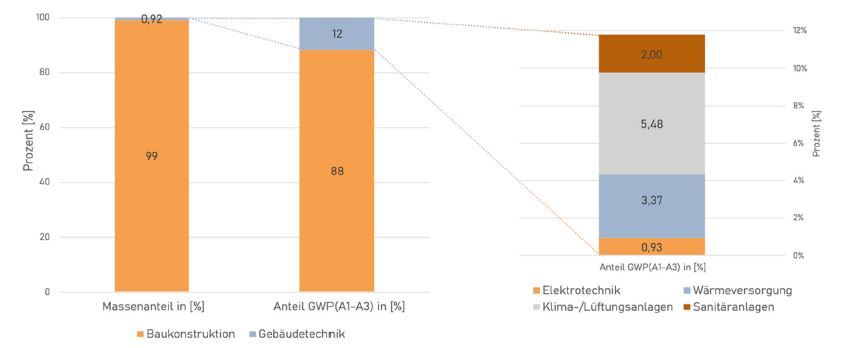CircularBioMat – Recyclable biogenic materials for building installations and supply equipment
Short Description
Running time
January 2024 to January 2027
Starting point / motivation
At present, a large proportion of components for technical building installations (TGA) – including
ventilation outlets, switch and socket components – and supply equipment are predominantly made from petroleum‐based polymers. A close examination of the market has shown that there are hardly any or no biogenic components available for technical building installations and supply equipment. This
circumstance was extensively investigated in the BiBi‐TGA exploratory project, which has already been
completed in 2022.
With this in mind, the research project CircularBioMat is now working with a consortium of research and industry – including Salzburg University of Applied Sciences, Montanuniversität Leoben, Miraplast Kunststoffverarbeitung, Schnabl Stecktechnik, AGRU‐Kunststofftechnik and Tecnaro – to investigate biogenic alternatives to fabricate materials and composites that perform similarly to or better than their petroleum‐based competitors. Various process technologies are available for the further processing of the developed materials, including extrusion, injection molding and MEX (material extrusion) 3D printing.
Contents and goals
- Development and testing of bio‐based materials and composites – including bio‐polymers reinforced with natural fibers and recycled materials – for technical building installations (TGA) and supply equipment
- Further processing of the materials using various process technologies, including extrusion, injection molding and MEX (material extrusion) 3D printing
- Prototype production and subsequent comparisons with commercially available petroleum‐based components for building installations and supply equipment
- Conducting life cycle analyses for the developed materials and the manufactured components
Methodological approach
For the first time, a comprehensive evaluation of the applicability of biogenic and bio‐based polymers is to be carried out in an area in which only fossil materials are currently used. The holistic approach will provide a technological, ecological and economic assessment of new materials and thus the basis for new areas of application for the evaluated ecological materials. The topic of recycled materials – exclusively biogenic or bio‐based as well as mixtures with fossil recycled components – will be given a special focus.
In order to achieve this goal, biogenic alternative materials – e.g. compounding of biogenic polymers, wood‐plastic compounds, recycled materials – will be further developed and the first ecologically optimized prototypes will be produced and comprehensively evaluated. The prototypes are manufactured using extrusion, injection molding and additive MEX.
The material and prototype developments are simultaneously examined as part of life cycle analyses in order to quantify the predicted ecological improvements. The focus on ecological improvement in the production of building services and supply technology components and the simultaneous evaluation of prototyping and material development with life cycle assessment results represent a novelty.
Expected results
The results and findings from the research project CircularBioMat will help to significantly improve the ecological footprint of components used in technical building installations (TGA) and supply equipment.
Project Partners
Project leader
FH‐Prof. DI Dr. Markus Leeb
Fachhochschule Salzburg GmbH
Campus Kuchl
Markt 136a, A ‐ 5431 Kuchl
Tel.: +43‐50‐2211‐2703
E‐Mail: markus.leeb@fh‐salzburg.ac.at
Project partners
- Montanuniversität Leoben
- Miraplast Kunststoffverarbeitung
- Schnabl Stecktechnik
- AGRU‐Kunststofftechnik
- Tecnaro


